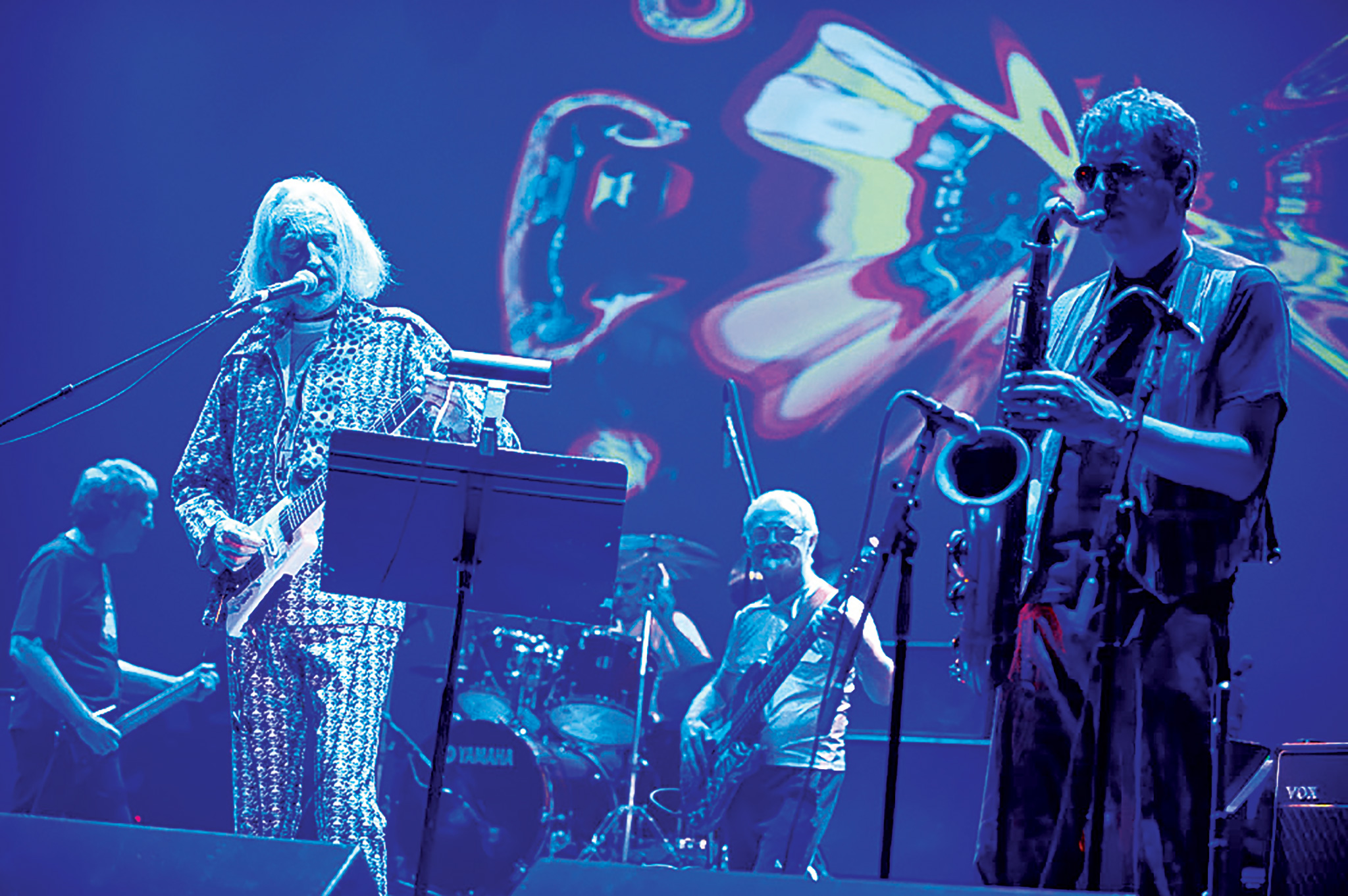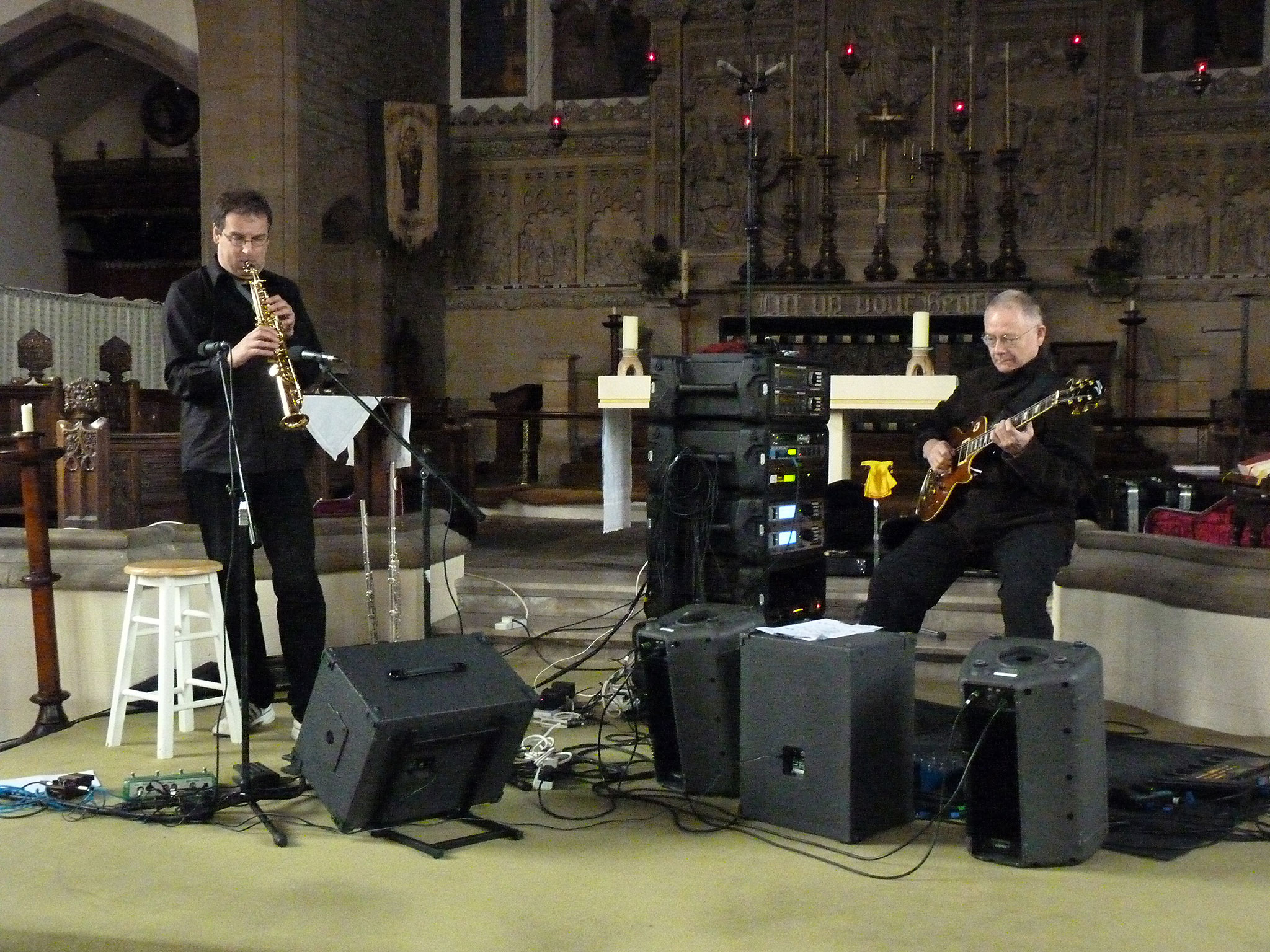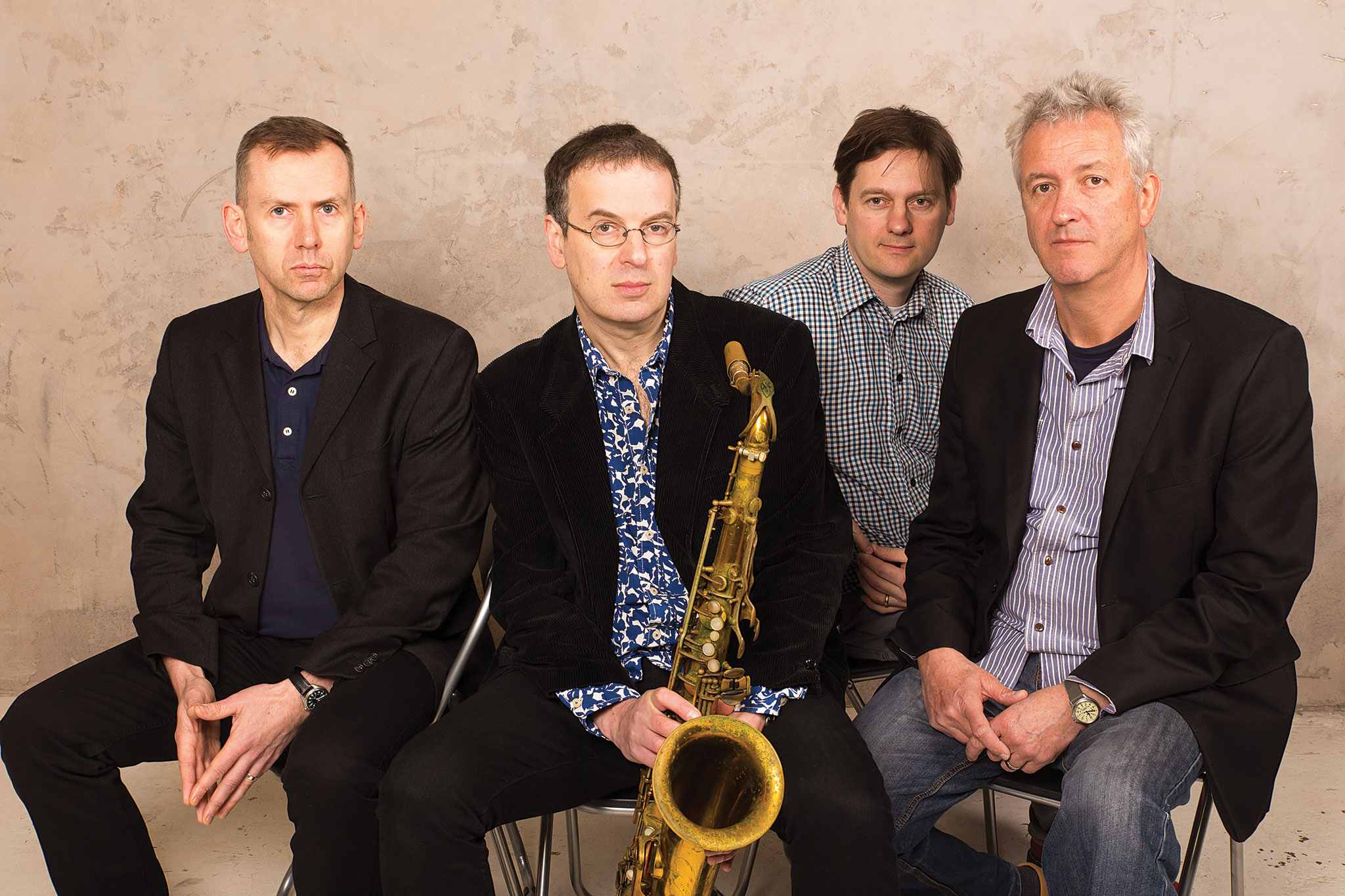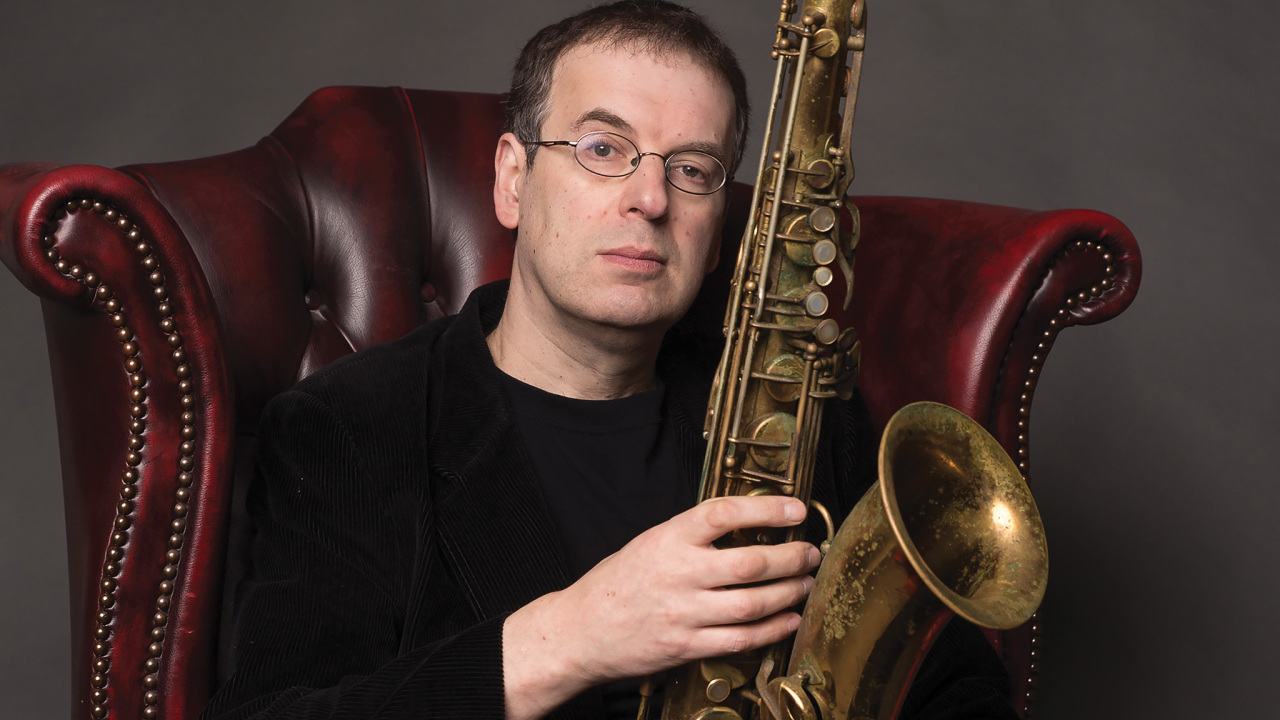They say good things come to those who wait, a phrase with which Peter Gabriel fans are all too familiar. But as the years and months roll by, the prospect of a new studio album from the slothful Segway‑riding singer seems as distant as ever.

ABOVE PHOTO BY JOEL DEL TUFO
Theo Travis is another musician who takes his time between albums, though he’d be the first to admit he doesn’t have quite the same weight of fan expectation bearing down on his shoulders. Nevertheless, eight years have passed between the release of Travis’ last solo album, 2007’s Double Talk, and his latest, Transgression. “Well, a few things got in the way between then and now,” he laughs, quick to point out that he hasn’t been idle in the intervening years. “I have been rather busy what with one thing and another.”
In addition to being a full-time member of Soft Machine Legacy, where he took over from the late Elton Dean, in 2008 he joined Gong alongside Daevid Allen and Steve Hillage, appearing on 2009’s 2032. The same year he began a creative partnership with Robert Fripp that saw the pair undertake numerous tours and which has so far netted an impressive four albums of material, the most recent being 2012’s Follow.
Then there’s been his association with Steven Wilson, both in the studio for Wilson’s last three albums and as a member of the touring band, a period he documented in his tour diary entitled Twice Around The World: Steven Wilson Tour Blogs 2012-2013, published in 2014. Its title provides proof, were it needed, that the eight years since Double Talk have been an incredibly busy period for the sax player. “A constant companion while I was touring with Steven was this,” he says, holding up a Moleskine notebook lined with music manuscript paper.

In addition to keeping a tour diary, he was also jotting down the musical ideas and themes that form the backbone of his latest release. “I’ve been writing this new album for years!” he laughs, “So this is really the first extended period of time I’ve had to devote to get back to my thing.”
Having spent the last eight years playing other people’s material in one form or another, did he have any problems in adjusting to the role of being a bandleader once again?
“A different mindset is needed when you’re working with someone else as opposed to on your own stuff. There are different levels of collaboration. For example, the Travis and Fripp stuff was very open and artistically very equal, partly as a result of that openness.
“When it comes to working with Steven Wilson, well, that’s obviously his shout really. That was more a case of playing sax and flute in his band, doing what was required and what he wanted from that role in the music. So it was very specific. He’s a very exacting bandleader and knows exactly what he wants.
When you do your own thing, you can do whatever you like in whatever genre. You can jump from bag to bag – more rocky, more jazzy, more improv.
“When you do your own thing, like with this album, you can do whatever you like in whatever genre,” Travis adds. “You can jump from bag to bag – more rocky, more jazzy, more improv. You decide what it’s going to be like in the writing, and how it should sound. You have a much more responsible role when you’re the name artist, as it were, than when you’re doing things with other people –though to be fair, I enjoy both roles.”
Clearly a player who is comfortable in any number of genres, Travis describes his new release as progressive jazz. “By that I mean it’s equally informed by jazz and instrumental progressive rock. It’s interesting that having done a lot of recording for progressive rock artists and then going back to the jazz artist mode, the rock things are more produced, more assembled – file sharing with parts being flown in separately in the studio. Whereas the jazz way of doing things is more immediate and spontaneous, playing live in the studio, eyeballing each other and getting that instant response from the player opposite you. Although Transgression is probably more rocky than any other of my solo albums to date, the way we rehearsed, performed and recorded it live in the studio is very much the jazz way of doing things.”
Despite having an impressive list of contacts – guest names on his previous solo albums have included Richard Sinclair, Palle Mikkelborg, Robert Fripp, Daevid Allen and others – Travis was keen to keep Transgression to his regular quartet of Nic France (drums) and Mike Outram (guitars), both of whom have worked sessions with Steven Wilson, and Pete Whittaker on Hammond organ.
“I was keen not to bring in anybody from the outside, as it were, but just have a cracking band of four people – rehearsing the stuff, playing it live, going on tour with the same four people,” explains Travis. “Playing as a band from beginning the recordings through to the gigs, I wanted us all to play together and do what we can do as a band.”
Travis reveals that Transgression is much darker in tone and feel than some of his earlier works, and the title track is the broadest and longest on the album. “It has quite a simple tune but it then goes through a journey, going through various sections and time signatures. I wanted it to start with a simple tune but then take the listener to quite a few different places musically. Having a piece that can do that in a long-form composition that incorporates elements of jazz playing and writing alongside some no-holds-barred, full-on rock playing was one of the aims of this piece. I like a good, kicking band with some punchy guitar solos and dramatic writing.”
Perhaps the most overtly commercial track is Smokin’ At Klooks. Both the song and its title are a homage to Klooks Kleek, the North West London club that became a cornerstone of the British blues boom of the early 60s. “I used to live round the corner from The Railway Hotel in West Hampstead where the club was held. The place was where jobbing musicians went to play at the time, only they happened to be Eric Clapton, Peter Green, John Mayall, Keith Richards et al. They went from this small room in a pub to lead the world in rock.”

It’s slow-burning blues that invokes the yearning style of Peter Green’s stint with John Mayall’s Bluesbreakers. “I was definitely after that sound world, and Mike Outram’s guitar solo captured the haunting Peter Green sound I’ve always loved. The idea was to combine that with an instrumental bluesy track featuring flute in what is essentially a blues but with a twist – it’s a 16-bar blues as opposed to the usual 12-bar variety.”
Travis plans to tour Transgression around the UK and abroad well into the new year. After that, he is, as his old musical sparring partner Robert Fripp is wont to say, “allowing the future to present itself”. So will there be another eight-year gap until this album’s follow-up? “I hope not!” Travis laughs.
Though not yet set in tablets of stone, he hopes the future will involve some work with The Tangent while continuing to play alongside guitarist John Etheridge, bassist Roy Babbington and drummer John Marshall in Soft Machine Legacy, with their guest, the legendary UK pianist Keith Tippett.
As much as he’s looking forward to these other projects, though, for now, Transgression is his main focus.
“I think the music has enough rock elements that would appeal to people who have heard me with Soft Machine Legacy, Steven Wilson and with Robert Fripp. It’s very much where I am, that mixture of jazz, rock, prog. I hope that comes through.”
Transgression is out now on Esoteric. For more information, see www.theotravis.com.

PHOTO BY DIANA NITSCHKE
Top Prog Picks
Theo Travis reveals his all-time top three prog rock tracks…
Awaken
from Going For The One – Yes
This to me is the ultimate prog epic. It has very beautiful song sections, other-worldly soundscapes at the beginning and end, developing and building melodic lines, great keyboard and guitar solos, and a fantastic structure that builds and really takes you somewhere.
Carrying No Cross
from Danger Money – UK
Like Awaken, it starts and ends with a gentle and beautiful song that builds and builds, before returning at the end. I love the developments in the sections and the ensemble playing. Superbly recorded, there’s a massive Terry Bozzio drum sound and the whole thing feels hugely satisfying as an organic piece of music.
Shine On You Crazy Diamond
from Wish You Were Here – Pink Floyd
Not only a great song with ‘that’ haunting guitar riff emerging from the opening ambient soundscape, but a piece of music that, unlike so many, has plenty of space to breathe and takes its time to get to where it’s going. The fact that where it’s going is the most fabulous sax solo in rock makes it all the more wonderful. Floyd’s finest hour!

